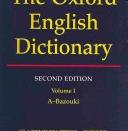As the world is becoming more specific, the writing techniques are also becoming more specific. The writers have more variety of literary tools such as allusion, metaphor, symbolism, and irony. Irony is the most common and most efficient technique of the satirist. Since this technique is so popular and being used in many different ways, people do not really understand the true meaning of the word. A clear understanding of the word irony as it applies to literature can be attained by an analysis of its formal, historical, and informal definitions.
The word irony can be understood by its formal definition. First, according to the Oxford English Dictionary, the word irony has two different denotations. The first one is, "A figure of speech in which the intended meaning is the opposite of that expressed by the words used; usually taking the form of sarcasm or ridicule in which laudatory expressions are used to imply condemnation or contempt."
(OED) Furthermore, the OED states that the second denotation is, "An instance of this; an ironical utterance or expression." Secondly, the word irony has two connotations according to the OED. The first connotation is "A condition of affairs or events of a character opposite to what was, or might naturally be, expected; a contradictory outcome of events as if in mockery of the promise and fitness of things." (OED) Another connotation definition of the word irony in an etymological sense is, "Dissimulation, pretence; esp. in reference to the dissimulation of ignorance practiced by Socrates as a means of confuting an adversary." (OED) In addition, the word irony is an adoption of the Latin word ironia after the Greek word eipwveia, which means dissimulation, ignorance purposely affected. (OED) Nevertheless, it is not the only way to analyze that.
The word irony can be...



:D
Good work. Very detailed. Good writing structure.
0 out of 1 people found this comment useful.